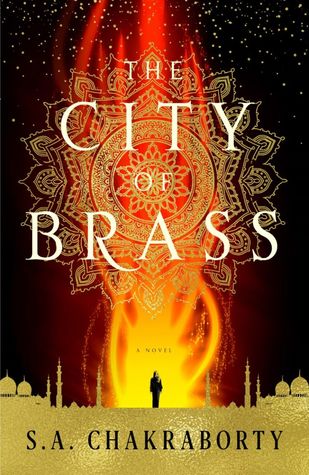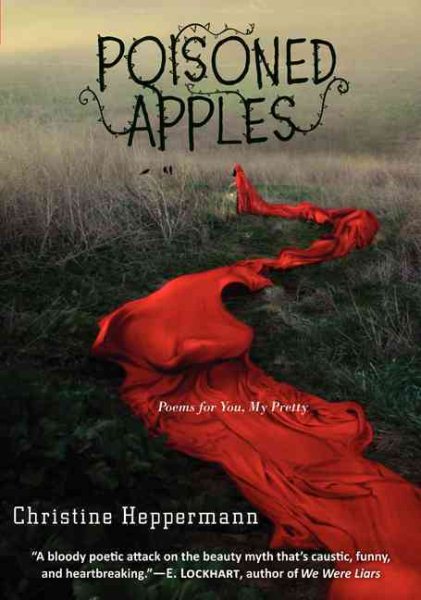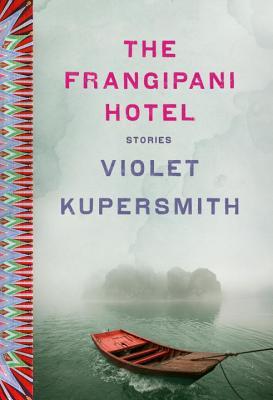In this issue:
- Guest of Honor: Violet Kupersmith
- Programming Proposals Due May 6
- Apply for Sirens Scholarships
- Tickets Update
- Sirens Meet-Ups
- Amy’s Book Club
- Read Along with Faye
- In Case You Missed It …
GUEST OF HONOR: VIOLET KUPERSMITH
Due to a very happy personal circumstance, Zen Cho will no longer be able to attend this year’s Sirens. Instead, the incomparable Violet Kupersmith will join us as our Hauntings guest this October! Violet is the author of The Frangipani Hotel, a collection of supernatural short stories about the legacy of the Vietnam War, and a forthcoming novel on ghosts and American expats in modern-day Saigon.
We’ve been enthusiastically recommending The Frangipani Hotel every year at Sirens since it was released. Her ghost stories are simultaneously retold Vietnamese folktales, an indictment of the Vietnam War, and an exquisite exploration of loss—of culture, of country, of family, of self. Her settings are palpable, her characters all-too-human, and her work brilliant, incisive, and subversive.
Please join us in welcoming Violet to Sirens! We have updated our reading lists and website, and you can read Violet’s full biography on our Guests of Honor page.
PROGRAMMING PROPOSALS DUE MAY 6
You have only seven days left to propose programming for this year’s Sirens! We hope that you’re considering submitting a proposal or two. You voice is valid and valuable, whether you’re new to Sirens or a ten-year veteran, and whether you’re a reader, scholar, librarian, farrier, secret-keeper, or heroine!
We are accepting proposals until May 6. For full information and instructions, please see our Programming Proposals page, as well as our series of blog posts on 2018 Programming, featuring programming types, tips, tricks, and general advice.
Have questions? Looking for a co-presenter? Need more inspiration? Check out the #SirensBrainstorm tag on Twitter; every Monday we tweet out fresh ideas free for the taking. We’ll also be hosting one more programming chat on our Chat page, which will be live at the scheduled time:
- Tuesday, May 1, 9–11 p.m. Eastern (6–8 p.m. Pacific)
APPLY FOR SIRENS SCHOLARSHIPS
Due to the tremendous generosity of the Sirens community, we have 12 scholarships to award this year: three for people of color, three for exemplary programming proposals, three for those with financial hardships, and three for librarians, educators, and publishing professionals. The deadline for financial hardship and professional scholarships is May 13. For more information, visit our Scholarships page.
Each scholarship includes a conference registration and a round-trip shuttle ticket. Please spread the word! If you’re eligible for a scholarship, we very much hope that you’ll apply. Everyone needs a helping hand or some extra encouragement sometimes, and we’re so grateful to the Sirens community for making this support possible.
TICKETS UPDATE
Studio and Supper tickets are nearly sold out! We currently have only 14 tickets remaining for our Sirens Studio and six tickets remaining for our Sirens Supper. If you’d like to purchase a ticket, you may do so in our registration system.
SIRENS MEET-UPS
Though nothing replaces attending Sirens in October, we occasionally host casual get-togethers for the Sirens community throughout the year. It can be a great way to introduce us to your friends (and vice versa), share a meal or a cup of tea, and chat about books with fellow Sirens community members! Here are the meet-ups in Denver and New York:
- Denver: Saturday, May 5, 2–4 p.m. Mountain
- New York City: Saturday, May 19, 2–4 p.m. Eastern
Please note that attendees must pay for their own drinks and food. RSVP to Jennifer at (jennifer.shimada at sirensconference.org). Please see our post for the full details.
AMY’S BOOK CLUB

Sirens co-founder Amy Tenbrink talks personal reading quirks, reluctant heroines, and dazzling world-building in her book club pick this month—S. A. Chakraborty’s The City of Brass—which she called, “in many, many, ways … a tour de force.” Read her thoughts on the blog and on Goodreads.
READ ALONG WITH FAYE

Communications Director Faye tried her hand at young adult poetry this month for her 2018 Reading Challenge pick, Christine Heppermann’s Poisoned Apples: Poems for You, My Pretty. “The book is a handsome tome, pocket-sized with art and text laid out just-so, and Heppermann is clearly talented, even if her poems don’t speak to my experience as a former teenage girl.” Read her full review on the blog and on Goodreads.
IN CASE YOU MISSED IT …
- Twelve Sirens Scholarships Funded for 2018
- New Fantasy Books: April 2018
- Sirens Meet-Ups: Denver and New York City!
- Guest of Honor: Violet Kupersmith
Questions? Concerns? Please email general queries to (help at sirensconference.org) and questions about programming to (programming at sirensconference.org).


































Connect with the Sirens community
Sign up for the Sirens newsletter